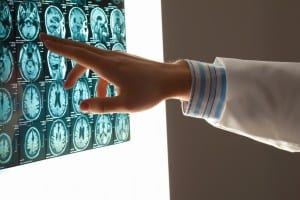Auditory Response: A Reliable, Objective Finding of Concussion?
June 28, 2017
Auditory Response: A Reliable, Objective Finding of Concussion?
Concussions, a mild form of traumatic brain injury (TBI), are notoriously difficult to diagnose. This is largely due to the facts that:
- The symptoms of concussions can be latent, subtle, and/or generic.
- There is currently no definitive test for detecting concussions.
The findings from a recent study, however, may revolutionize the process of diagnosing concussions. That could mean that treatments for concussions are administered sooner, possibly resulting in better prognoses, faster recoveries, and improved quality of life for these TBI patients.
Have You or a Loved One Been Diagnosed with a Concussion or TBI?
Call (713) 352-7975 or Contact Our Firm to set up a free consultation
Analyzing Responses to Sound & Pitch: The Study
Headed up by Nina Kraus, a neuroscientist at Northwestern University, this groundbreaking concussion study1 examined how 40 children responded to sound.
These participants, ages 8 to 15, included:
- Concussed children who, on average, had sustained a concussion 27 days prior to the study
- A “control group” made of children who had no history of concussion or brain injury.
During the first phase of the study, all participants had three simple sensors placed on their heads. The sensors measured the electrical responses automatically generated by each child’s brain in response to speech. After analyzing participants’ brains’ “frequency following response,” researchers were able to accurately identify:
- 90 percent of participants with a concussion
- 95 percent of the control group participants (i.e., the children without a concussion).
In the second phase of the study, researchers evaluated 11 of the concussed children during follow-up visits. The intent was to assess the degree to which auditory responses could be used to evaluate progress made in recovery.
Here’s what researchers concluded from these two phases:
- Concussed children were less responsive to sound pitch. On average, they were 35 percent less responsive to sound (when compared to the control group).
- Of the concussed group, children with the most severe symptoms showed the least response to sound and pitch.
- As participants recovered from the concussion, their auditory responses also improved (with the potential to return to normal upon full recovery).
Effectively, these findings suggest that sound tests could be a reliable indicator of both the presence of concussions and the recovery from them.
Summing up the importance of this study’s findings, Kraus has stated:
Making sense of sound requires the brain to perform some of the most computationally complex jobs it is capable of, which is why it is not surprising that a blow to the head would disrupt this delicate machinery… This isn’t a global disruption to sound processing… It’s more like turning down a single knob on a mixing board…This biomarker could take the guesswork out of concussion diagnosis and management… Our ambition is to produce a reliable, objective, portable, user-friendly, readily available, and affordable platform to diagnose a concussion.
It is important to point out that this relatively small study has yet to be duplicated in a larger group that includes concussed adults. Nevertheless, its findings are remarkable and promising.
Recovering from Concussions: Beyond Medical Treatments
As researchers and medical professionals continue to focus on improving diagnoses and treatments for concussions (and more serious TBIs), it’s essential for patients and their families to understand that:
- Medical treatments may only be one component of the overall recovery process.
- There may be legal options for pursuing financial recovery, depending on the cause(s) of the concussion.
For instance, if the concussion arose from a car accident or slip and fall, there may be various legal remedies for seeking compensation (and justice). An attorney at the Amaro Law Firm is ready to discuss your rights and explain your options for financial recovery.
Take the First Step towards Financial Recovery: Contact a Houston Brain Injury Lawyer at the Amaro Law Firm
If you or a loved one has sustained a concussion or more severe TBI, contact a Houston brain injury lawyer at the Amaro Law Firm to find out more about your legal recovery options.
Call (713) 352-7975 or Contact Our Firm to set up a free consultation and get the information that could make all of the difference in your financial recovery. If you are unable to visit our office, virtual consultations are available, and we can travel to meet you.
Our extensive experience advocating the rights of injured people and helping them secure the financial recoveries they deserve has earned us 5-star ratings on Google and Facebook.
____________________________________________________________________________
1: Study published Scientific Reports, December 2016
